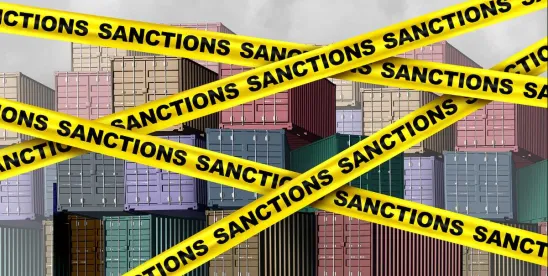On 23 May 2025, the United States provided broad sanctions relief to Syria and the new Government of Syria under President Ahmed al-Sharaa. While speaking at an investment forum in Riyadh, President Trump announced his intentions to lift sanctions on Syria, stating that sanctions relief will “give them a chance at greatness.”
To that end, the U.S. Department of the Treasury’s Office of Foreign Assets Control (OFAC) issued General License (GL) 25, authorizing transactions prohibited by the Syrian Sanctions Regulations (SySR), as well as transactions prohibited under certain other statutes and executive orders. Alongside GL 25, the US Department of State issued a 180-day waiver of mandatory “Caesar Act” sanctions to permit certain investments in Syria and the Financial Crimes Enforcement Network permitted US banks to maintain correspondent accounts for the Commercial Bank of Syria.
Between 2004 and 2011, the United States imposed increasingly comprehensive sanctions on Syria, prohibiting most US investment in Syria, the export of goods and services to Syria, dealings in Syrian petroleum, and transactions involving Syrian blocked parties, including “secondary sanctions” for significant dealings with the blocked Government of Syria.
Under GL 25, US persons are authorized to engage in many transactions prohibited under the SySR, including:
- Transactions with 28 Syrian parties on the Specially Designated Nationals and Blocked Persons List (SDN List), including certain financial institutions, ports, oil and gas companies, airlines, and ministries. These parties are named in the Annex to GL 25. Authorization to deal with these named parties extends to the blocked entities they own at least 50% or more (collectively “Annex Parties”).
- Certain transactions in Syria, provided they do not involve blocked parties that are not Annex Parties, including: new investment in Syria, the export of services to Syria, US importation and other dealings in Syrian petroleum, dealings in the property and property interests of Annex Parties, and payment transfers involving such authorized activities.
It is important to note that GL 25 does not authorize:
- Transactions involving blocked parties not specifically authorized under GL 25.
- Unblocking any property blocked as of 22 May 2025.
- Exports, reexports, and transfers to or within Syria that require authorization under the Export Administration Regulations or International Traffic in Arms Regulations. Accordingly, the export, reexport, or transfer of defense articles and dual-use items, software, and technology remain prohibited unless authorized.
- Transactions involving the Governments of Russia, Iran, or North Korea.
Sanctions relief under GL 25 became effective on 23 May 2025 and is not subject to an expiration date. OFAC can revoke GL 25 at any time or replace it with a “GL 25A” requiring the “wind down” of existing transactions by a certain date. The Treasury Department has signaled that additional sanctions relief may be forthcoming, referring to GL 25 as a “first step.”








 />i
/>i
